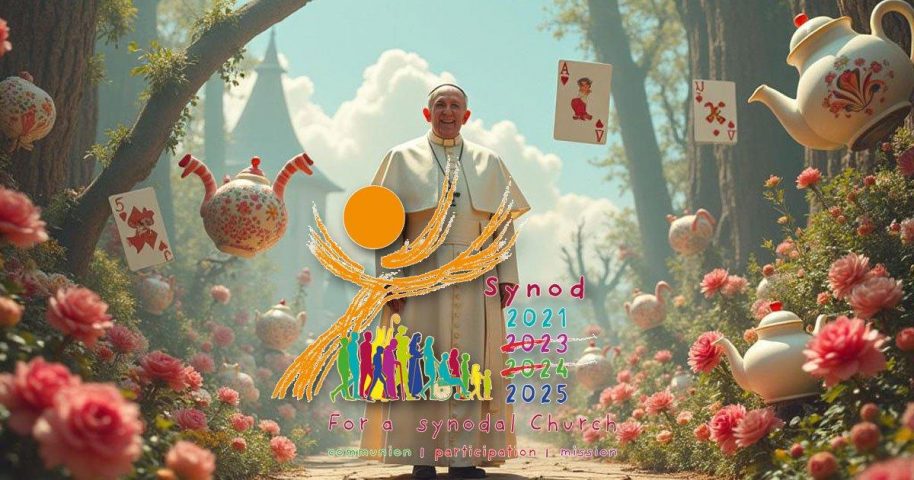The Synod on Synodality Could Be One of the Most Dangerous Events in Church History
October 3, 2024Human Trafficking Crisis Intensifies Under Biden-Harris Border Policies, by Sydney Hudson
October 3, 2024
By Robert Royal, The Catholic Thing, October 2, 2024
As the second (and final?) session of the Synod on Synodality opens today, many people are still asking: What is synodality? There seems to be no good answer to that question. Indeed, the synod organizers think the very question is wrong. The best that anyone with some authority to say has been able to come up with is that synodality is not a “what” but a “process.” It “is” what it “does.”
What kind of process, other than continued talking with one another, is hard to say. But it’s an open-ended process that is to continue beyond the closing date of the synodal session later in the month – the end of the beginning, so to speak, not the beginning of the end. Not only for the chosen delegates and those appointed by Pope Francis to ongoing “study groups” slated to report at the earliest in June of 2025, but for the future of the worldwide Catholic Church.
In addition to the also somewhat woolly synodal aims of “communion, participation, and mission” – all of which have been going on for 2000 years without benefit of the synod on synodality – there’s been a renewed emphasis during this process on a “new way of being Church.”
For those too young to have been there, “being Church” – not being “the” Church (more on this below) – was an ungrammatical but stylish neologism in the decade or so after Vatican II. Its meaning was not very clear then either, but the phrase signaled the very latest in Catholic self-definition. The Synod’s leaning heavily on this 1970s coinage, which had gone into remission from roughly 1978 to 2013, doesn’t seem very likely to produce much that’s living and new and cutting-edge now, any more than it did then.
Yet expectations have been allowed to run high. The Instrumentum laboris (“Working Document”) states clearly that “Without tangible changes, the vision of a synodal Church will not be credible.” Asking whether that vision is desirable might be a good use of the synod’s time too. And hardly a “sin against synodality,” but a crucial part of listening to all points of view, which is synodality’s professed reason for being.
So it’s only right to ask: What kinds of “tangible changes”?







